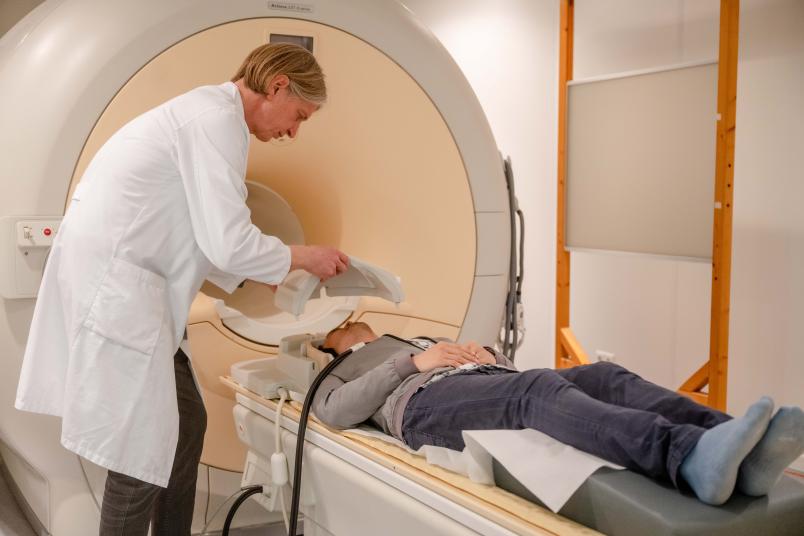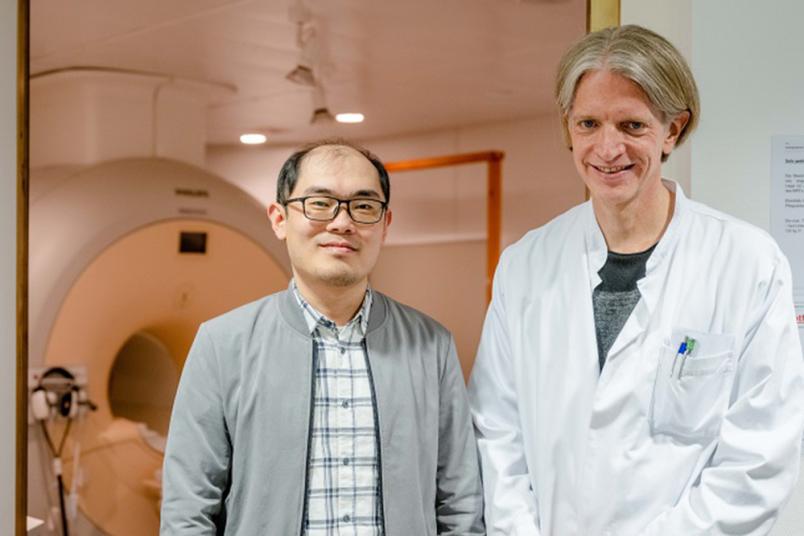Neurology
Tracing the evolutionary origin of cognitive flexibility
A research team from Bochum and Newcastle has discovered new neuronal network mechanisms of flexibility in learning behaviour.
Get up. Go to the kitchen. Prepare some cereal – but a look into the fridge shows: the milk bottle is empty. What now? Skip breakfast? Ask the neighbour for milk? Eat jam sandwiches? Every day, people are confronted with situations that were actually planned quite differently. Flexibility is what helps. The origin of this skill in the brain is called cognitive flexibility. A neuroscientific research team at the Berufsgenossenschaftliches Universitätsklinikum Bergmannsheil, University Hospital of Ruhr University Bochum, Germany, and the Biosciences Institute at Newcastle University has now succeeded in getting a little closer to the evolutionary origin of cognitive flexibility. The researchers published their findings in the journal Nature Communications, online since 9. June 2023.
Key factor in many neuropsychiatric diseases
Cognitive flexibility is essential for the survival of all species on Earth. It is particularly based on functions of the so-called orbitofrontal cortex located in the frontal brain. “The loss of cognitive flexibility in everyday life is a key factor in many neuropsychiatric diseases,” Professor Burkhard Pleger and first author Dr. Bin Wang from the Berufsgenossenschaftliches Universitätsklinikum Bergmannsheil describe their motivation for the study. “Understanding the underlying network mechanisms is therefore essential for the development of new therapeutic methods.”
Using functional magnetic resonance imaging (fMRI), the Bochum team and their cooperation partner Dr. Abhishek Banerjee from the Biosciences Institute at Newcastle University examined the brain functions of 40 participants while they were learning a sensorimotor task.
While lying in the MRI, the volunteers had to learn to recognise the meaning of different touch signals – similar to those used in Braille – on the tip of the right index finger. One touch signal told the participants to press a button with their free hand, while another signal instructed them not to do so and to remain still. The connection between the two different touch signals and pressing the button or not pressing the button had to be learned from trial to trial. The challenge: after a certain time, the touch signals changed their meaning. What had previously meant “pressing the button” now meant “holding still” – an ideal experimental set-up to investigate the volunteers' cognitive flexibility. The fMRI provided images of the corresponding brain activity.
Similarities between humans and mice
“Similar studies had already been done with mice in the past,” says Pleger. “The learning task we chose now allowed us to observe the brains of mice and humans under comparable cognitive demands.”
A surprising finding is the comparability between the Bochum results in humans and the previously published data from mice, Wang points out. The similarity shows that cognitive functions that are important for survival, such as the flexibility to adapt quickly to suddenly changing conditions, are following comparable rules in different species.
In addition, the Bochum scientists were able to determine a close involvement of sensory brain regions in the processing of the decisions made during tactile learning. Wang emphasises: “Besides the frontal brain, sensory regions are essential for decision-making in the brain.” “Similar mechanisms had also previously been observed in mice,” adds Pleger. “This now suggests that the interplay between the frontal brain and sensory brain regions for decision-making was formed early in the evolutionary development of the brain.”

